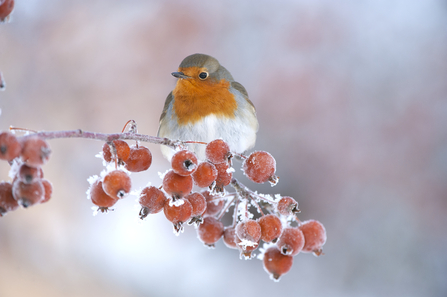
Robin red breast. Image by Mark Hamblin 2020VISION.

Robin red breast. Image by Mark Hamblin 2020VISION.
Geoff Dobbins, Northumberland Wildlife Trust Estates Manager says:
“Gardens, flower beds and balconies are a vital source of shelter and food for wildlife in winter when many species need warm, dry spaces to bed down in.
“When you are out in your garden, please bear in mind how holding back on some projects until spring can really make a difference and, you never know, you may be rewarded with visits from some wonderful species.
“Even the corners of a dusty shed may have butterflies overwintering in them, so put your duster down and put your feet up until next spring.”